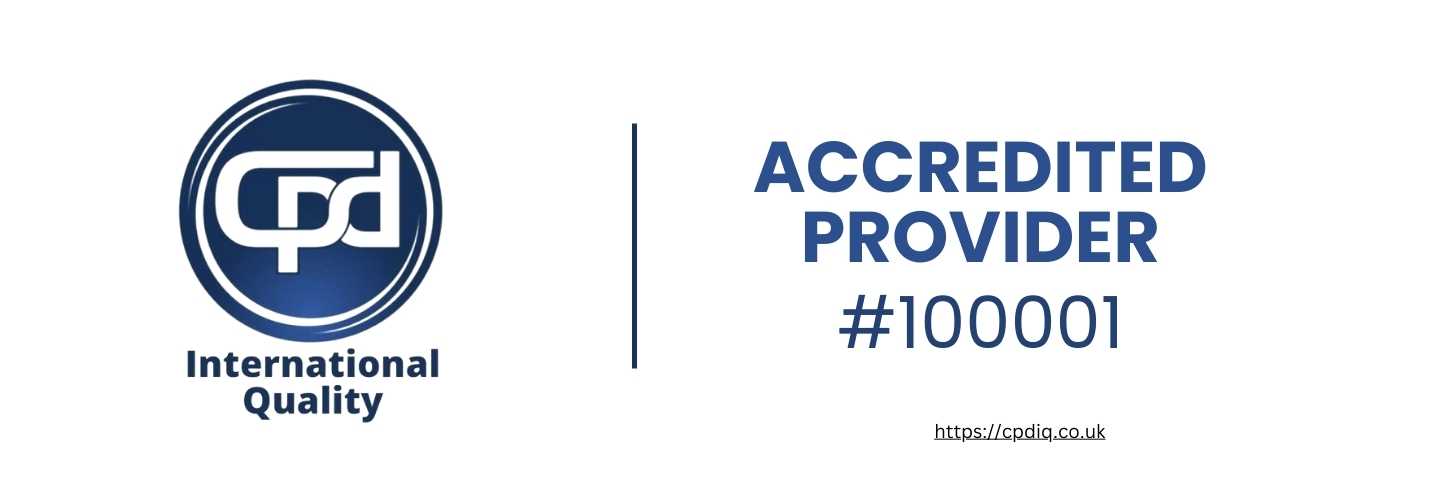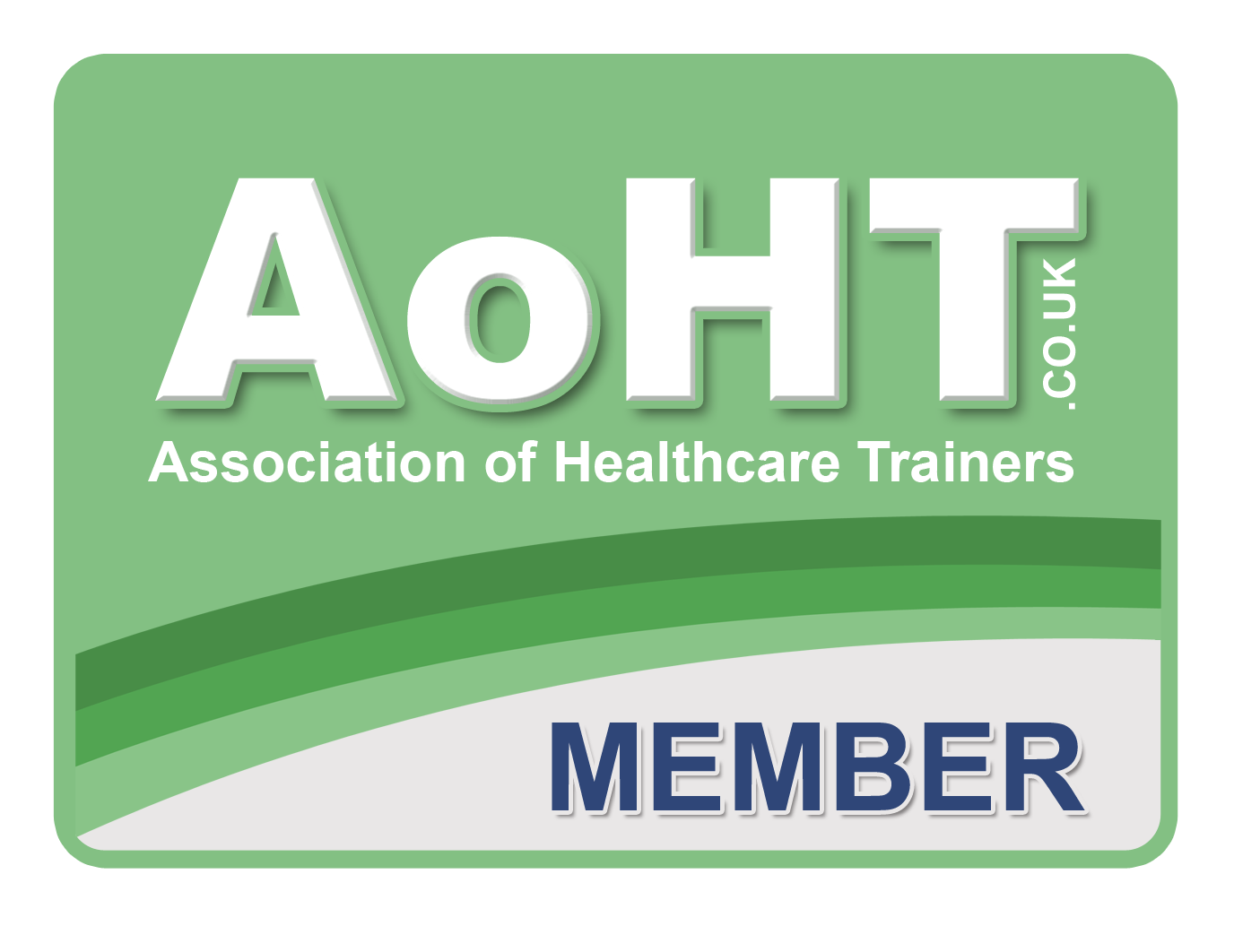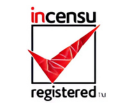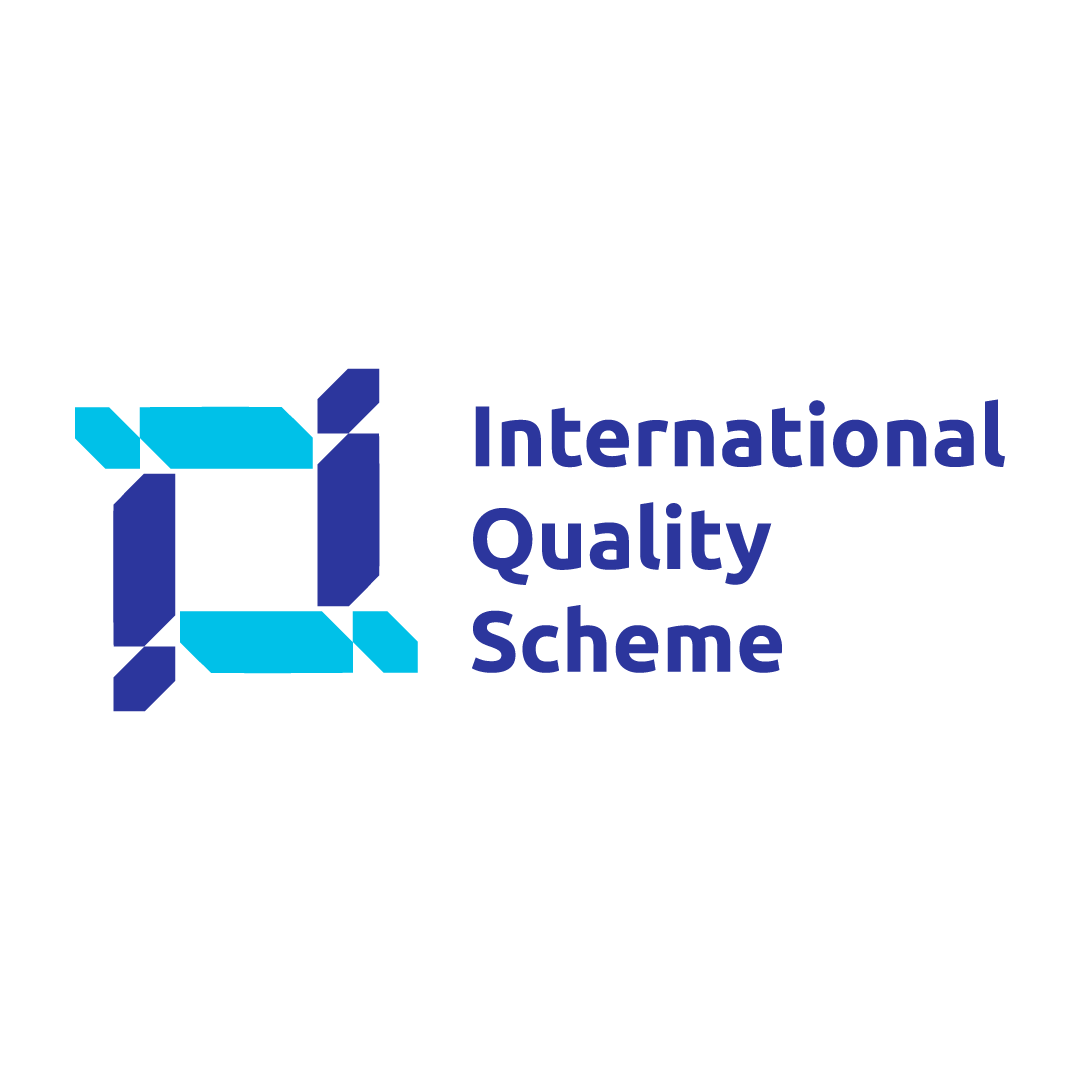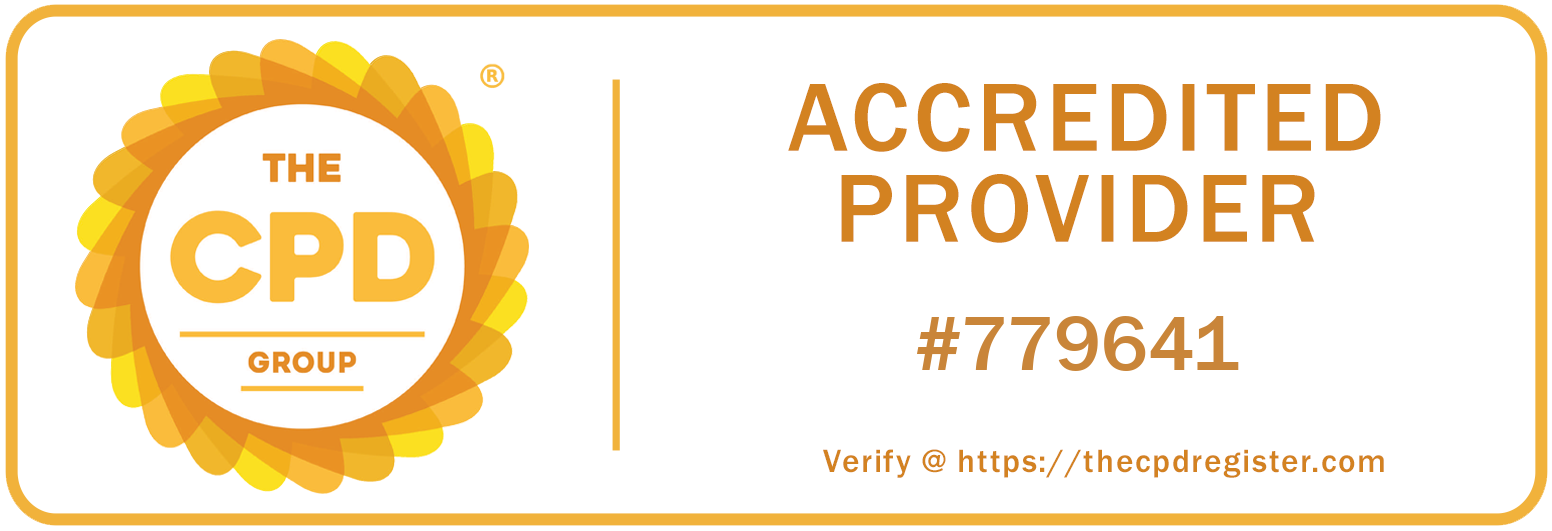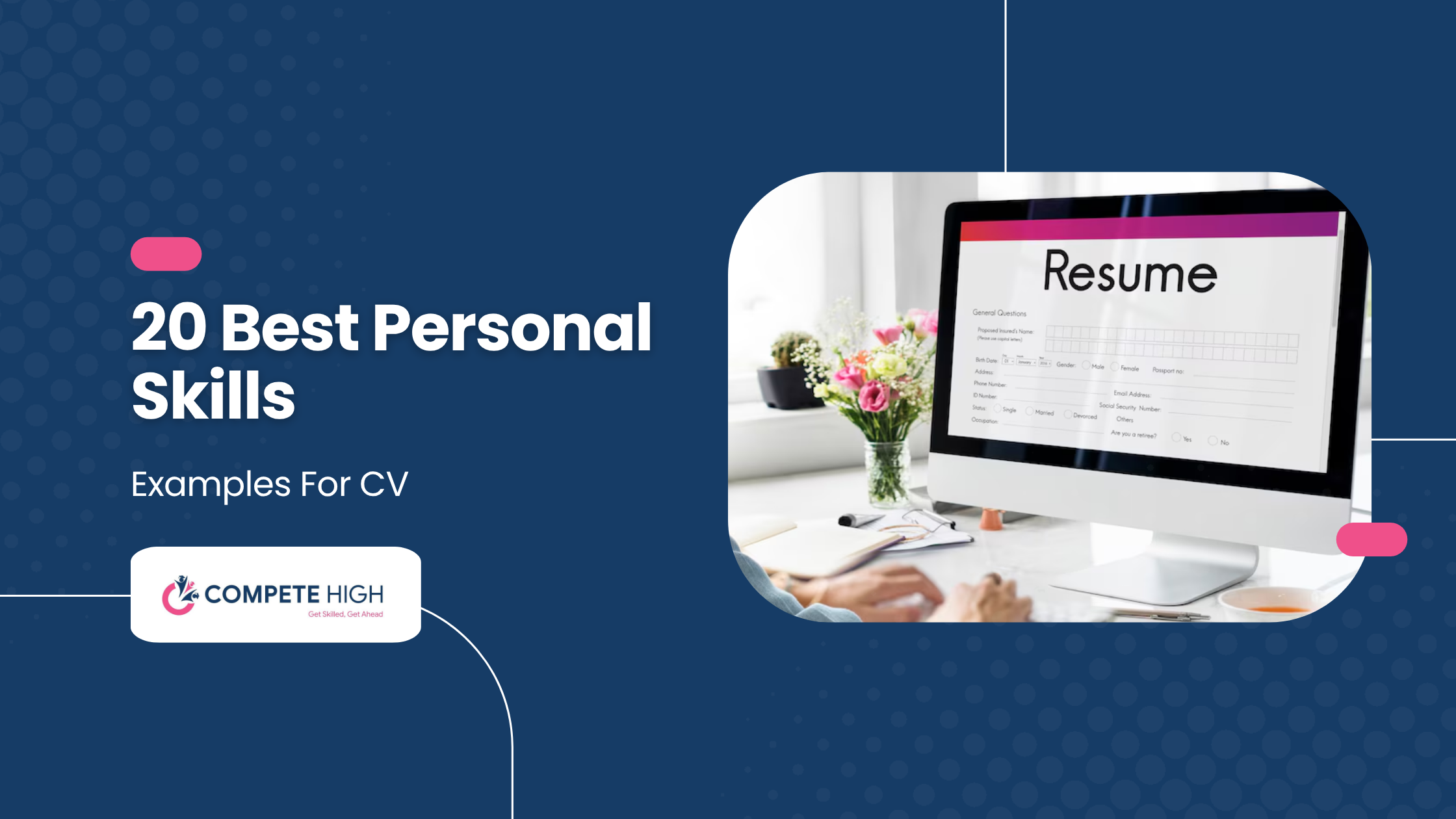
Personal skills are often overlooked, but when it comes to writing a CV that gets noticed, most people focus on their work experience, qualifications, and technical expertise. While these are certainly important, they’re not the only things employers care about. In fact, in today’s competitive job market, your personal skills — how you work, think, and collaborate — are just as critical. Knowing what are personal skills are and how to present them can significantly enhance your CV.
Employers want to know more than just what you can do. They also want to understand how you operate in a team, respond to challenges, communicate with others, and handle pressure. These qualities, often found in a strong list of skills and qualities, can make the difference between someone who’s competent and someone who thrives in the workplace. It's important to highlight both personal skills for CV and understand what are professional skills, so you present a well-rounded view of your abilities.
Quick Overview
This blog explains why personal skills are just as vital as qualifications in creating a standout CV, especially in the UK job market. It covers what personal skills are, why employers value them, and how to present them with evidence to boost your chances of success.
Key Takeaways:
✅ Understand the difference between personal and professional skills.
✅ Learn 20 high-impact personal skills with real CV examples.
✅ Discover where and how to showcase personal skills effectively.
What Are Personal Skills?
Personal skills, often called soft skills, are non-technical abilities that reflect your personality, behaviour, and mindset. These include personal skills examples like communication, teamwork, adaptability, leadership, and time management. Unlike professional skills — such as software proficiency or language fluency — personal skills are transferable. You can carry these skills and attributes from job to job, across industries and roles. Whether you're applying for a customer-facing role in retail, a managerial position in finance, or a creative job in marketing, personal skills for CV writing help define the way you work and interact with others.
The Growing Importance of Personal Skills in the UK Job Market
In the UK, employers consistently report that soft skills are among the most desirable qualities in new hires. According to recent surveys from the Chartered Institute of Personnel and Development (CIPD), many employers are placing just as much — if not more — weight on personal attributes as they are on formal qualifications.
Why? Because technical knowledge can be taught. But personality traits like integrity, motivation, and interpersonal ability are much harder to develop on the job. Strong personal skills also contribute to healthier workplace dynamics, stronger team cohesion, and better problem-solving.
How to Identify the Right Personal Skills for Your CV
Before you start listing out your skills and qualities list, it’s important to choose them strategically. Not every job values the same traits, so it’s essential to tailor your CV to match the role you’re applying for, especially when it comes to highlighting relevant personal skills and professional strengths.
Study the Job Description
Carefully read the job posting and highlight any soft skills mentioned. For example, if the description says “must work well under pressure” or “excellent communication required,” these are clear clues about the personal skills you should highlight. Matching your professional skills examples to the language in the ad can make your CV more impactful.
Reflect on Your Strengths
Think about the qualities colleagues or managers have complimented you on. Are you known for your ability to stay calm in stressful situations? Do others rely on you to mediate disagreements or take initiative? These reflections help you identify both personal skills and professional strengths worth showcasing.
Use Evidence, Not Claims
Avoid simply listing generic traits like “great communicator” or “strong team player.” Instead, include brief professional skills examples that prove your claim. Backing up your skills with results adds credibility.
- Weak example: Good at multitasking
- Strong example: “Managed customer enquiries, scheduled appointments, and processed transactions simultaneously in a busy retail setting.”
Where to Include Personal Skills in Your CV
Here are the solutions to include personal skills in your cv:
In the Personal Statement
Your CV’s statement — that short paragraph at the top — is a great place to highlight 2–3 key personal skills that align with the job. When writing this section, think about the most relevant skills and qualities for a CV and match them to the role.
“Motivated customer service professional with excellent communication skills and a strong ability to resolve conflict under pressure.”
In the Work Experience Section
This is arguably the most powerful place to showcase CV personal skills. Rather than listing them in isolation, weave them into your bullet points with context and outcomes. This approach also helps you demonstrate skills and qualities CV in action.
“Led a three-person team to deliver a marketing campaign two weeks ahead of schedule, demonstrating leadership and time management.”
In the Skills Section (If You Use One)
Some CV formats include a dedicated “Skills” section. If you choose to include one, mix both hard and soft skills — but keep it concise and relevant. This is where you can clearly present CV skills and qualities, using a combination of skills and qualities examples to support your application.
20 Personal Skills to Boost Your CV — with Examples
When highlighting personal skills on your CV, it's not enough to just name them. You need to present them in a way that clearly shows how they’ve been applied in real-world situations. Below are twenty high-impact personal skills and qualities, why employers value them, and how to express them effectively on your personal resumes.
These are excellent examples of skills and qualities employers look for, and showing how they apply to both personal and professional skills can make your CV stand out. Consider these both personal skills for resume writing and examples of professional skills that demonstrate your overall value to a potential employer.
1. Communication
Strong communication skills go beyond speaking clearly. They involve listening, writing, presenting, and adjusting your tone based on your audience.
Why employers value it:
Communication is crucial in nearly every job — whether you're liaising with clients, writing emails, or presenting ideas to a team.
CV example:
“Delivered regular project updates to senior stakeholders, improving clarity across departments and reducing email back-and-forth by 30%.”
2. Teamwork
Teamwork is about collaborating with others, sharing responsibility, and supporting your colleagues to achieve common goals.
Why employers value it:
No one works in a vacuum. Employers want people who contribute to a positive, productive team environment.
CV example:
“Worked closely with a four-member sales team to meet monthly targets, leading to a 15% boost in department performance.”
3. Problem-Solving
Problem-solving involves identifying challenges, analysing situations, and finding practical, effective solutions.
Why employers value it:
Things go wrong all the time. Employers value candidates who can think on their feet and keep things moving.
CV example:
“Identified and corrected a flaw in stock management software, reducing inventory errors by 40%.”
4. Adaptability
Adaptability means being open to change and flexible in the face of new challenges, environments, or tasks.
Why employers value it:
Businesses evolve quickly. Adaptable employees help teams adjust and thrive when things shift unexpectedly.
CV example:
“Adapted quickly to remote working conditions while maintaining productivity and meeting all reporting deadlines.”
5. Time Management
Time management is the ability to organise your tasks, prioritise work, and meet deadlines without sacrificing quality.
Why employers value it:
Managing time effectively keeps projects on schedule and reduces stress — for you and your team.
CV example:
“Balanced full-time university coursework with a part-time retail role, consistently submitting assignments early and exceeding sales targets.”
6. Critical Thinking
Critical thinking means analysing information, questioning assumptions, and making reasoned decisions.
Why employers value it:
It leads to smarter decisions and reduces risk — especially in roles involving data, planning, or strategy.
CV example:
“Analysed competitor marketing campaigns and recommended adjustments that increased website traffic by 20% over three months.”
7. Emotional Intelligence
Emotional intelligence (EQ) involves recognising and managing your own emotions, as well as understanding others' feelings and perspectives.
Why employers value it:
High EQ employees are more empathetic, better communicators, and help foster a healthy workplace culture.
CV example:
“Resolved a customer dispute by listening calmly and acknowledging concerns, resulting in a positive review and ongoing business.”
8. Leadership
Leadership doesn’t always mean managing a team — it also means taking responsibility, inspiring others, and guiding a group towards a goal.
Why employers value it:
Leaders motivate teams, solve conflicts, and make decisions — whether they hold a title or not.
CV example:
“Led a group of volunteers to organise a local fundraising event, raising over £3,000 and exceeding our original target.”
9. Conflict Resolution
Conflict resolution involves staying calm under pressure and helping others find a fair, constructive solution to disagreements.
Why employers value it:
Teams encounter conflict — it’s how you handle it that counts. Employers value those who de-escalate tension rather than escalate it.
CV example:
“Mediated a disagreement between team members during a group project, helping reach a compromise that kept the project on track.”
10. Work Ethic
Work ethic is about reliability, commitment, and taking pride in your work — even when no one’s watching.
Why employers value it:
Hard-working employees are consistent, trustworthy, and set a good example for others.
CV example:
“Recognised as ‘Employee of the Month’ twice for consistent punctuality, customer satisfaction, and willingness to support team members.”
11. Creativity
Creativity involves generating new ideas, thinking innovatively, and finding original solutions to problems.
Why employers value it:
Creative thinkers often bring fresh perspectives, spot hidden opportunities, and help drive progress — especially in roles related to marketing, content, design, or product development.
CV example:
“Developed a creative social media campaign that increased engagement by 50% within one month.”
This is a key personal skill to highlight on your personal skills CV, especially in dynamic industries.
12. Initiative
Initiative is about taking action before being told — spotting opportunities and acting on them without needing direction.
Why employers value it:
Employers love proactive employees who go beyond the bare minimum. Showing initiative demonstrates independence, professionalism skills, and a strong work ethic.
CV example:
“Proposed and implemented a new filing system that reduced document retrieval time by 40%.”
13. Organisation
Organisation means managing time, tasks, and resources efficiently — keeping things tidy, logical, and on track.
Why employers value it:
Well-organised people waste less time and help teams meet deadlines, avoid stress, and work more efficiently.
CV example:
“Organised a company-wide inventory audit, reducing lost stock by 20% and improving order accuracy.”
This is a classic example of a transferable personal skill that shows reliability and foresight.
14. Interpersonal Skills
Interpersonal skills refer to how well you build relationships, interact with colleagues and clients, and work collaboratively.
Why employers value it:
Good interpersonal skills lead to stronger teamwork, better customer service, and smoother workplace communication.
CV example:
“Built strong relationships with key clients, leading to a 25% increase in repeat business.”
These are vital personal attributes for a job that involves people-facing roles.
15. Decision-Making
This skill is about analysing options, making smart choices, and taking responsibility for the results.
Why employers value it:
Indecision slows things down. Employers want people who can make confident, well-reasoned choices, especially under pressure.
CV example:
“Made data-driven purchasing decisions that saved the company over £8,000 in the last financial year.”
It’s a strong example of combining personal and professional skills effectively.
16. Resilience
Resilience is your ability to stay strong, positive, and focused when facing setbacks or high-pressure situations.
Why employers value it:
Work isn’t always easy. Resilient employees are the ones who keep going, keep improving, and don’t crack under pressure.
CV example:
“Remained productive and solution-focused during a company restructure, maintaining service delivery standards under increased workload.”
This is a key trait in any personal skills list that applies across all industries.
17. Attention to Detail
Attention to detail means being precise, thorough, and catching small errors before they become big problems.
Why employers value it:
In roles involving data, finance, admin, or compliance, a strong eye for detail can prevent costly mistakes.
CV example:
“Reviewed client contracts and spotted inconsistencies that would have led to compliance issues, saving the team from legal setbacks.”
This is one of the most essential professional skills for resume success, especially in technical fields.
18. Multitasking
Multitasking is the ability to handle several responsibilities at once without losing focus or lowering quality.
Why employers value it:
In fast-paced environments like retail, healthcare, or hospitality, multitasking keeps operations smooth.
CV example:
“Managed customer service calls, processed orders, and coordinated logistics simultaneously during peak trading hours.”
It’s an excellent example from a personal skills list that demonstrates agility and focus.
19. Negotiation
Negotiation involves reaching mutually beneficial agreements, whether with customers, colleagues, or suppliers.
Why employers value it:
Negotiation skills help companies save money, close deals, and avoid conflict — making you a valuable asset.
CV example:
“Negotiated a new vendor contract that lowered supply costs by 15% without compromising on quality.”
This is both a personal skill and one of the top professionalism skills sought after in business.
20. Accountability
Accountability means taking ownership of your responsibilities, learning from mistakes, and being dependable.
Why employers value it:
Accountable employees build trust, set a strong example, and drive team results.
CV example:
“Took full responsibility for managing project timelines and deliverables, ensuring the campaign launched on time with zero delays.”
This demonstrates both personal attributes for a job and strong professional skills for resume content.
Including any of these personal skills on your CV — especially when supported by real-life examples — will show employers that you’re not only qualified, but also someone they can rely on, work with, and trust to represent their organisation professionally. These traits, when selected thoughtfully from a list of personal skills, also align with essential skills and qualities for CV writing and help highlight your professionalism skills in action.
These ten skills and qualities for CV use practical, outcome-driven examples that can serve as a helpful example of skills of a person in a work setting. As part of your skills and attributes examples, be sure to tailor each one to the role you're applying for and complement them with a strong list of professional skills in your CV layout. This blend of personal attributes for CV, personal qualities for CV, and professional skills for CV gives hiring managers a complete picture of what you bring to the table.
How to Showcase Personal Skills Effectively on Your CV
Now that you’ve seen 20 strong personal skills and how to phrase them with impact, it’s important to focus on how to present them well. Even the best examples of personal skills can go unnoticed if they’re not placed strategically or backed by substance.
Here’s how you can make your personal skills shine — and avoid common mistakes that weaken your CV.
Focus on Relevance, Not Quantity
Listing every skill you can think of is tempting, but a cluttered CV is harder to read and can feel generic. Instead, pick 5 to 7 good personal skills that are most relevant to the job you’re applying for. These should reflect your strongest work skills for CV use.
Think about the specific personal qualities CV employers are looking for. You can usually find clues in the job description — look for phrases like:
- “Must be able to work independently” → Suggests initiative and accountability
- “Collaborative team environment” → Points to teamwork and communication
- “Fast-paced setting” → Highlights adaptability and time management
By selecting only the personality skills that match the job, your CV feels targeted and thoughtful — not like a copy-and-paste template.
Back Up Each Skill with a Clear Example
If your CV just says “Excellent problem-solving skills,” you’re not telling the employer anything useful. Anyone can write that — what matters is the evidence.
Instead of generic claims, use bullet points that describe:
- What you did
- How you used the skill
- What the result was
This structure is often referred to as the STAR method (Situation, Task, Action, Result). Even if you’re not following it formally, the key is to be specific.
Generic: “Strong leadership abilities.”
Impactful: “Led a team of 5 in delivering a customer onboarding project, reducing implementation time by 25%.”
That’s how you move from claims to proof — and from being ignored to being shortlisted.
If you're ever wondering what is a professional skill, it's not just technical ability — it's also about how you apply both your personal skills and your professional strengths to real-life work situations.
Place Skills Where They Matter Most
There are three main places you can highlight personal skills on your CV:
Personal Statement (Top of the CV)
This short paragraph gives a snapshot of who you are. It’s a great place to include 2–3 personal skills and attributes that define your approach to work and align with the role. Including relevant personal qualities and skills here helps create a strong first impression.
Example:
“Detail-oriented administrator with excellent communication and organisation skills, known for streamlining processes and improving customer service outcomes.”
Work Experience Bullet Points
This is where your personal skills in CV writing really come to life. By showing how you’ve applied them in past roles, you offer proof of your capabilities — not just talk. These examples also help balance both personal skills and professional skills CV content in a practical, results-based way.
Example:
“Resolved customer disputes calmly and effectively, leading to a 90% satisfaction rate and multiple return clients.”
Skills Section (Optional)
If you choose to include a separate skills section, keep it clean. Group hard skills and soft skills, or label them clearly. But avoid cramming in too many — only include the most impactful personal skills and attributes and relevant technical expertise.
Example:
Technical Skills: Microsoft Excel, CRM Software
Personal Skills: Problem-solving, Team collaboration, Adaptability
Use Powerful Action Words
Bland verbs can make your achievements sound forgettable. Use strong, precise action words to bring your personal skills and experience to life. For example:
- Led a project (instead of “was responsible for”)
- Initiated a new system (instead of “helped with”)
- Resolved conflicts (instead of “dealt with”)
- Collaborated with stakeholders (instead of “worked with”)
These verbs make your role sound active, dynamic, and results-focused, effectively highlighting your skills and personal attributes.
Tailor Your CV for Every Application
Even if you’re applying to similar jobs, resist the urge to send out the same CV every time. A few tweaks to your list of key skills for a CV — or how you describe your experience — can make your application feel far more relevant.
Ask yourself:
- What qualities for resume does this employer need most?
- Which of my strengths and personal skills match those needs?
- Do I have examples that demonstrate them clearly?
Tailoring your CV doesn’t mean rewriting it from scratch — it just means being strategic. That small effort can be the difference between being passed over or being called for an interview.
Final Thoughts
Personal skills are often the unsung heroes of a CV — but in reality, they’re among the most important elements. Understanding the personal skills definition helps clarify why these qualities matter so much: they show not only what you’re capable of but also how you approach your work and interact with others.
When you highlight the right skills, and back them with strong examples, you demonstrate to employers that you’re someone who brings value beyond qualifications. You become a professional who’s adaptable, thoughtful, reliable, and capable of contributing to a healthy and productive workplace.
So take the time to review your CV. Choose personal skills that are authentic, relevant, and impactful — and give them the attention they deserve. That extra effort could be the key to landing your next opportunity.



